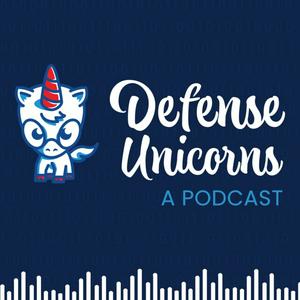Shipping Software Faster and Safer with Pepr
On this episode of The Defense Unicorns Podcast, host Rebecca Lively chats with Case Wylie, Software Engineering Lead, about building security-minded software that keeps up with developer velocity. From his early days at Red Hat to architecting open-source tools at Defense Unicorns, Case shares how Pepr—a TypeScript-based operator framework—is redefining how Kubernetes clusters are secured and managed in airgapped environments. It’s not just about enforcing policy; it’s about enabling developers to move faster, safer, and smarter.Through real-world metaphors (ever been to a nightclub with strict bouncers?), Case breaks down the roles of admission controllers, operator frameworks, and how Pepr works seamlessly with GitOps without adding friction. He explains why Pepr isn’t just a tool, but part of a broader movement to standardize security postures, reduce configuration drift, and empower app teams to focus on delivering real value. With a human-first API and open-source DNA, Pepr is built to be accessible to all, not just Kubernetes power users.If you’re curious about what it takes to scale secure software in complex, mission-critical environments—or just want a fresh, practical take on DevSecOps—this episode delivers. Case also shares his philosophy on open-source collaboration and what it means to build tools that truly stand the test of scale and scrutiny.Key Quote:“Pepr will always be open source and the reason why it's open source is because frankly, open source software, when your software is open source, you expose the application or the software or the platform, whatever it is to exponentially more eyes and more eyes over time and then more people start adopting it and using it and saying like, ‘Hey, you know what? I do have this simple thing I always have to do in my cluster. Maybe I try Pepr for that.’ Right? And then they do it with a simple task, and then they say, ‘Hey, you know what? It would be great if Pepr could do this thing. And they put in a feature request. Then we develop that feature request, or they develop it, and they submit a PR to Pepr. And now Pepr as a whole is better because now you're using it. I'm using it. They're using it. The more people that use it, the better.”Case WylieTime Stamps:(02:44) Introduction to UDS and Pepr(05:59) The Importance of Air-Gapped Environments(11:40) Understanding Kubernetes Admission Control(16:05) Comparing Pepr with Other Tools(22:00) Why Pepr Uses TypeScript(34:03) The Benefits of Open Source for Pepr(43:31) Lightning RoundLinks:Connect with Casey WylieConnect with Rebecca LivelyLearn More About Defense Unicorns

